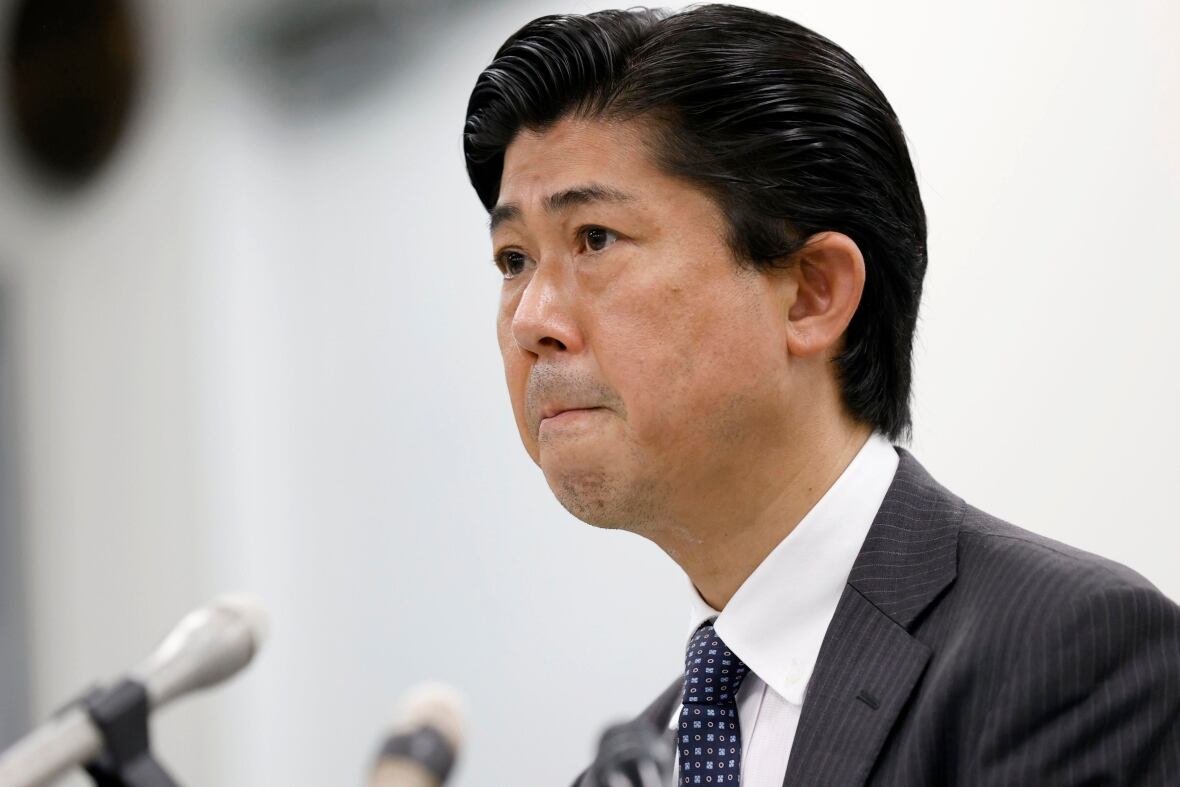Japanese police chief acknowledges 'problems with our security' after Shinzo Abe's assassination
Hearse carrying former PM's body arrives in Tokyo after his shooting death in Nara

A top police official on Saturday acknowledged possible security lapses that allowed an assassin to shoot former Japanese Prime Minister Shinzo Abe while he was addressing a campaign rally, raising questions how could the attacker get so close behind him.
Abe was shot in the western city of Nara on Friday and airlifted to a hospital but died of blood loss. Police arrested the attacker, a former member of Japan's navy, at the scene. Police confiscated his homemade gun and several others were later found at his apartment.
On Saturday, a black hearse carrying Abe's body and accompanied by his wife, Akie, arrived at his home in Tokyo's upscale residential area of Shibuya. Many mourners, including top party officials, waited for his remains and lowered their heads as the vehicle passed.
Nara prefectural police chief Tomoaki Onizuka said Abe's assassination was his "greatest regret" in a 27-year career.
"I cannot deny there were problems with our security," Onizuka said. "Whether it was a setup, emergency response, or ability of individuals, we still have to find out. Overall, there was a problem and we will review it from every perspective."

Abe's assassination ahead of Sunday's parliamentary election shocked the nation and raised questions over whether security for the former prime minister was adequate.
Some observers who watched videos of the attack noted a lack of attention in the open space behind Abe as he spoke.
A former Kyoto prefectural police investigator, Fumikazu Higuchi, said the footage suggested security was sparse at the event and insufficient for a former prime minister.
"It is necessary to investigate why security allowed Yamagami to freely move and go behind Mr. Abe," Higuchi told a Nippon TV talk show.
Gun-related crimes rare in Japan
Experts also said Abe was more vulnerable standing on the ground level, instead of atop a campaign vehicle, which is usually the case but was reportedly unavailable due to his hastily arranged visit to Nara.
"Looks like police were mainly focusing on frontward, while paying little attention to what's behind Mr. Abe, and nobody stopped the suspect approaching him," said Mitsuru Fukuda, a crisis management professor at Nihon University. "Clearly there were problems."
Fukuda said that election campaigns provide a chance for voters and politicians to interact because "political terrorism" was extremely rare in postwar Japan. But Abe's assassination could prompt stricter security at crowded events like campaigns, sports games and others.
During a parliamentary debate in 2015, Abe resisted suggestions by an opposition lawmaker to beef up his security, insisting that "Japan is a safe country."
The attacker, Tetsuya Yamagami, told investigators he acted because he believed rumours that Abe was connected to an organization that he resents, police said. Japanese media reported that the man had developed hatred toward a religious group that his mother was obsessed about and that caused his family financial problems. The reports did not specify the group.
In videos circulating on social media, the 41-year-old Yamagami can be seen standing only a few metres behind Abe across a busy street, and continuously glancing around.
A few minutes after Abe stood at the podium and started his speech — as a local party candidate and their supporters stood and waved to the crowd — Yamagami can be seen taking his gun out of a bag, walking toward Abe and firing the first shot, which released a cloud of smoke, but the projectile apparently missed Abe.
As Abe turned to see where the noise came from, a second shot went off. That bullet apparently hit Abe's left arm, missing a bulletproof briefcase raised by a security guard who stood behind him.
Abe fell to the ground, with his left arm tucked in as if to cover his chest. Campaign organizers shouted through loudspeakers asking for medical experts to provide first-aid to Abe. His heart and breathing had stopped by the time he was airlifted to a hospital, where he later pronounced dead.
Police on Saturday said autopsy results showed that a bullet that entered Abe's upper left arm damaged arteries beneath both collar bones, causing fatal massive bleeding.
Japan is particularly known for its strict gun laws. With a population of 125 million, it had only 10 gun-related criminal cases last year, eight of them gang-related.
Even though he was out of office, Abe was still highly influential in the governing Liberal Democratic Party and headed its largest faction. But his ultra-nationalist views made him a divisive figure to many.
